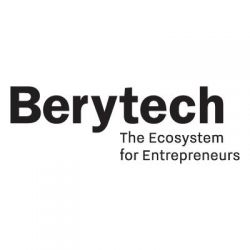Safety and Security Consultancy - WFP
Context & Background
Berytech is a leading organization in the Entrepreneurial Ecosystem in Lebanon, that aims to provide a conducive environment for the creation and development of startups, through incubation, business support, counseling, funding, networking, and company hosting, hence taking part in the economic revival of the country, participating in wealth and job creation, and retaining graduates and high-level skills in Lebanon.
About FSC PROJECT
The Food System Challenge supports businesses to solve core challenges of the food system in Lebanon, and more specifically in the sectors of dairy and meat production (cow, goat, sheep), cereals and pulses (and its by-products), protected horticulture (Classical green houses, hydroponics, and aquaponics), and domesticated edible herbs and plants.
The Food System Challenge is implemented by the World Food Programme (WFP) and Berytech through support from the German Federal Ministry of Economic Cooperation and Development (BMZ).
Throughout FSC’s previous and current cycles, the program supported over 40 SMEs to fortify the Lebanese food system to create more sustainable ecosystem.
Objective of the Webinar
Recognizing the need for robust safety protocols to protect assets and data, FSC has identified the importance of equipping SMEs with practical security insights and strategies to mitigate risk. This webinar aims to enhance the security and risk management capabilities of SMEs, with a particular focus on operations during wartime conditions. The primary objective of the webinar is to assist SMEs in developing comprehensive safety protocols, focusing on best practices in physical security and emergency preparedness. The session will offer actionable strategies to improve operational resilience in challenging environments.
Scope of work:
The webinar will deliver targeted guidance to SMEs on establishing safety protocols to protect assets and data, with an emphasis on high-risk, conflict-affected environments. The following scope of work outlines the key areas to be covered:
- Preparation and Content Development
- Develop a comprehensive presentation covering physical security fundamentals, tailored to the needs of SMEs in conflict-prone areas.
- Create a structured outline that addresses specific security topics, including facility security, access control, emergency preparedness and physical barriers.
- Prepare supplementary materials, such as tip sheets or checklists, to support participants in implementing the practices discussed.
- Physical Security Measures for Facilities
- Explain the critical role of physical security in maintaining business continuity under challenging conditions.
- Provide practical steps for securing office and workspace, highlighting cost-effective strategies suitable for SMEs.
- Introduction to Good Safety Practices (GSP), familiarize participants with GSP guidelines, highlighting the principles and practices that SMEs should integrate into their operations to maintain a safe working environment in compliance with established safety standards.
- Emergency Response Training
- Specify emergency tools, such as first-aid kits, telecommunications, fire extinguishers, flashlights, etc.
- Outline best practices for conducting regular safety drills and ensuring all staff understand their roles during emergencies.
- Explain various types of risks, mitigation, and preventive actions and precautions.
- Interactive Engagement and Q&A
- Include a dedicated Q&A session for participants to address specific security concerns and receive tailored advice on their challenges.
- Facilitate a brief interactive segment where participants can discuss best practices and share insights.
- Post-Webinar Resources and Follow-Up
- Distribute supporting materials (tip sheets, checklists) and the recorded session link to participants as references for future use.
- Provide a summary report capturing key points discussed, participant questions, and suggested follow-up actions to enhance security practices further.
Duration
The webinar will run for 1 – 1,5 hour, designed to deliver concise and impactful insights within this timeframe.
Key Deliverables
- Webinar Content Development – Develop a clear presentation covering physical security best practices tailored to SMEs in high-risk areas.
- Supporting Materials – Create any supplementary materials, such as tip sheets or checklists, to reinforce key points discussed during the session.
- Interactive Engagement – Provide opportunities for Q&A to ensure participants can clarify their understanding and discuss specific challenges.
- Post-Webinar Resources – Share a summary report or recorded session link to all participants for ongoing reference.
Qualifications:
The selected consultant should have:
- Proven experience in physical security and risk management, preferably within conflict-affected environments.
- Ability to communicate complex security strategies in an accessible manner suitable for SME managers and staff.
- Experience in developing and conducting interactive online training sessions.
How to apply
The selected Consultant is expected to start his/her activities soon after selection; the exact timeline and effective working days are to be set based on both the company’s and the Consultant’s availabilities.
Candidates should submit the following documents.
- Technical (maximum two pages) describing the methodology to conduct the work based on the content suggested in the section: “Scope of Work, Duration, and Deliverables” elaborating it further.
- Profile and project references (maximum two pages): A brief explanation of the consultant(s) background should be submitted (CVs shall be included as annex) along with project references on the topic.
- Financial Proposal describing the expected remuneration and the proposed timeframe of the intervention.
Documents and proposals must be sent to [email protected] by November 24th, 2024, at the latest, with the subject: “Food System Challenge – Safety and Security Protocols webinar.”
Important: The header of the technical and financial offers must note the candidate data (Name, address, country, telephone, email, and fiscal identity number or other official number).
